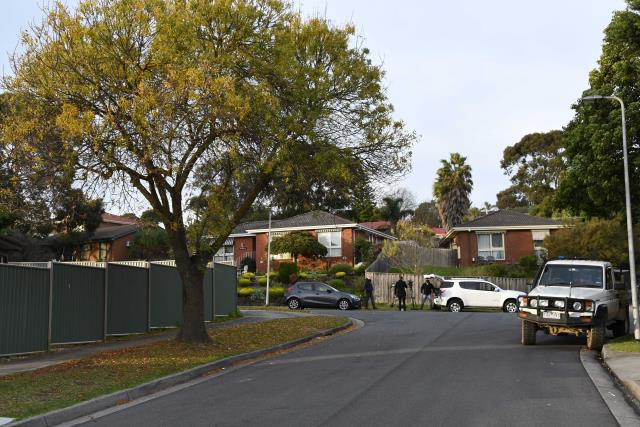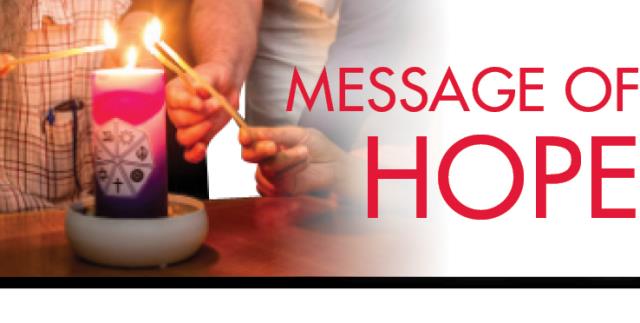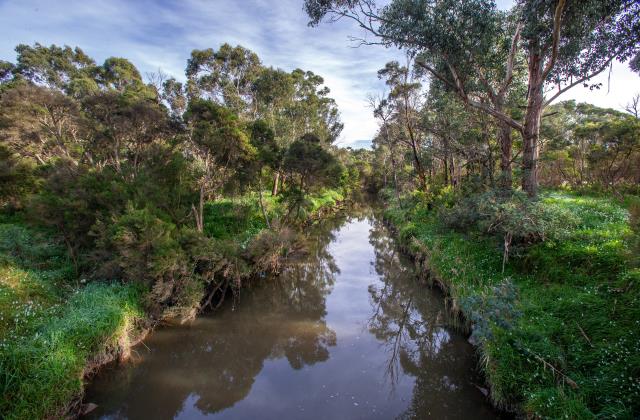Two men have been sentenced to 19 years and seven years in prison, respectively, for a series of offences that led to the death of Abdul Hakim Naurozi in Endeavour Hills in May 2020.
Mr Naurozi died after he was shot in the face with a sawn-off double barrelled shotgun which was discharged after Blake Wynne struck him in the back of the head with the rifle.
Wynne and Jordan Fiscalini intended to rob Mr Naurozi of vials of illicit drug GHB, the court heard, which he refused to hand-over while being threatened with the shotgun and a knife, with Wynne telling Mr Naurozi “give me the juice”.
Justice Christopher Beale noted that the prosecution did not allege that Wynne “deliberately pulled the trigger” of the shotgun, but he “did not check whether it was loaded”.
Police analysis of the gun deemed it an “unsafe firearm” that could be disarmed by means other than applying pressure to the trigger.
Both men carried-out an armed robbery and an attempted armed robbery in South Melbourne, with the same firearm approximately an hour before the Endeavour Hills incident, the court heard.
Wynne, 23, pleaded guilty to constructive murder (death whilst committing another crime), one count of armed robbery, one count of attempted armed robbery and one charge of being a prohibited person in possession of a firearm.
Fiscalini, pleaded guilty to two armed robberies, one charge of attempted armed robbery and one charge of being a prohibited person in possession of a firearm.
Wynne was serving a community corrections order when the incident took place, which was considered a “circumstance of aggravation” by Justice Beale, while Fiscalini was on bail at the time of offending.
In victim impact statements provided by Mr Naurozi’s family, the court heard that Mr Naurozi’s father felt that the pain experienced by the death of his son “will go on forever,” while his mother spoke of developing physical health issues due to the distress of the event.
In sentencing, Justice Beale noted that both offenders had entered guilty pleas and had “deprived” and “difficult” childhoods.
The court heard had previously spent time in prison due to weapons and drugs offences and had “poor” prospects of rehabilitation, with Wynne considered a “high risk of violently re-offending” based on a psychological report.
Wynne was diagnosed with a “severe stimulant use disorder” having first been introduced to cannabis at 13 and GHB at 16, and character references provided by family members and a former employer stated that drug use “changed” his behaviour.
“You told Dr Barth that these drugs came to dominate your life and that you were heavily intoxicated from these drugs when you committed the current offences,” Justice Beale said.
“You also became addicted to Xanax and benzodiazepines and would supplement your drug use with heavy binge drinking.
“A number of the references refer to the positive impact of your participation in drug rehabilitation in 2017, noting that you became “the real Blake” after completing the programs.
“It is clear your family hope for a similar turnaround once you are released from prison.
“Do not disappoint them. If you can get off drugs and stay off drugs, you could turn your life around, even whilst in custody.”
Two reports written by a psychologist on Fiscalini’s mental health and medical history, including diagnoses of Attention Deficit Hyperactive Disorder and Post-Traumatic Stress Disorder at age 12, found that his moral culpability was “diminished”.
The judge noted concerns that imprisonment could have a “significant adverse effect” on Fiscalini’s mental health, but believed restricting his access to illicit drugs could “significantly improve” him.
Fiscalini was jailed for seven years, including a five-and-a-half year non-parole period, to be served concurrently with a current jail term.
Wynne’s 19-year jail term includes a 14-year non-parole period.
The standard sentence for constructive murder is 25 years but Justice Beale considered 16 years to be an appropriate sentence due Wynne not deliberately discharged the firearm.
“Although the fatal discharge of the firearm was accidental, the conduct of both of you on both occasions involved a high risk to life and tragically a life was lost and a family is left bereft.”







